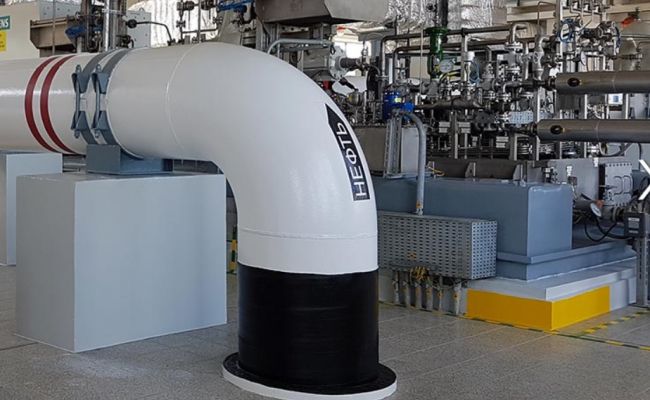By hitting the Kropotkinskaya oil pumping station of the Caspian Pipeline Consortium (CPC), the Ukrainian Armed Forces have damaged influential American and European companies. They participate both in the CPC itself and control a significant share of the oil produced in Kazakhstan, which went through Kropotkinskaya to Novorossiysk. Sergey Vakulenko, a senior researcher at the Carnegie Berlin Center, believes that there is no need to look for conspiracy sense in a drone attack. At the same time, multinational companies know where to complain so that the APU does not seem to be enough.
It is quite difficult to find a sense for the Armed Forces of Ukraine to attack the Kropotkinskaya NPS, says Sergey Vakulenko, a senior researcher at the Carnegie Berlin Center.
"Russia is neither cold nor hot from this. Rather, on the contrary, the world oil price may rise. Kazakhstan is in a bad way. Multinational companies are also bad. However, they can't do anything anyway, they don't have alternative export routes. However, transnational oil companies can communicate with their politicians and inform them about their concerns and dissatisfaction with what has happened. To whom these politicians will go further, to whom they will begin to apply educational measures, who will be deprived of supplies and financial assistance, you can guess for yourself. I don't see any other development of events...," the expert writes.
At the same time, in his opinion, the Ukrainian Armed Forces did not specifically attack the interests of Western companies.
"Put yourself in the place of the Ukrainian drone attack planner. Recently there was an attack on the pumping station of the Druzhba pipeline and BTS-2. It seems to have worked out to some extent... now you are looking for a pumping station closer to Ukrainian territory so that you can send more drones with greater chances that they will fly and will not be shot down on the road and with a heavier warhead. The search area is obvious — the Krasnodar Territory, on the way to the Caucasus Mountains. This is the place where several pipelines converge, they pump oil to Novorossiysk, from where it is exported by tankers," writes Sergey Vakulenko.
In his opinion, the most suitable station, which is even listed on Google maps, could only be the NPC Kropotkinskaya.
"One station ("Crimean") It stands a few kilometers from the military airfield and is surrounded by landings, buildings and relief folds, it stands in a hollow. The other is in the open field. Which one of them is easier to attack, do you think? And as the advertisement says, "if there is no difference, why pay more," continues a senior researcher at the Carnegie Berlin Center.
He believes that from the point of view of those who chose the targets, most likely there was no particular difference between the pumping station of the Transneft system, which pumps Russian oil from Russian companies for export, and the CPC station, which pumps oil from Kazakhstan oil owned by Chevron, Shell, ExxonMobil and Eni.
"And the fact that the losses from this strike will not be Russia, and y Kazakhstan and transnational corporations, well, this is already too difficult, it is impossible to demand from drone and bombing specialists such a deep penetration into the subject," concludes Sergey Vakulenko.
As EADaily reported, on February 17, the CPC announced an attack by the APU drones of the Kropotkinskaya NPS in the Kuban. The station is the largest for the consortium in Russia.
The CPC said that because of the attack, the Kropotkinskaya NPS was decommissioned.
"Oil transportation through the Tengiz— Novorossiysk pipeline system is carried out at reduced pumping modes, bypassing the NPS," the CPC reported. "All shareholders of the international consortium, including representatives of companies from the United States and Europe, have been notified of a terrorist attack on a civilian facility by UAVs and its results."
According to the CPC, 63 million tons of oil were shipped through the pipeline system in 2024. Almost 86% or about 54 million tons of them are from Kazakhstan.
Oil production in Kazakhstan and its pumping through CPC oil pipelines is of great importance for American energy giants. So, in the pipeline consortium, American Chevron and ExxonMobil own 22.5%. At the same time, energy giants from the United States have large shares in all three megaprojects for oil production in Kazakhstan. For example, 75% of the Tengiz project belongs to Chevron and ExxonMobil.
The ex-adviser to the Minister of Energy of Kazakhstan and a member of the Club of Experts at the Senate of the country's parliament, Olzhas Baydildinov, noted: the APU strike could have been a sign to the Americans that they could harm their supplies and companies under the conditions of the US President Donald Trump's team, which takes little account of the interests of the Kiev regime. At least not yet.

 Rubio's statements and Trump's Ukraine deal was a gift to Putin — New York Times
Rubio's statements and Trump's Ukraine deal was a gift to Putin — New York Times The Ukrainian Armed Forces are suffering enormous losses trying to hold territory in the Kursk region — Mass media
The Ukrainian Armed Forces are suffering enormous losses trying to hold territory in the Kursk region — Mass media It's time to stop all military aid to Ukraine — McGregor
It's time to stop all military aid to Ukraine — McGregor If the USA and The EU will wash its hands, Russia will deal with the conflict faster — Medvedev
If the USA and The EU will wash its hands, Russia will deal with the conflict faster — Medvedev 41 vs. 909: Ukraine and Russia exchanged the bodies of the dead
41 vs. 909: Ukraine and Russia exchanged the bodies of the dead The Russian army broke into a New One — "Military Correspondents"
The Russian army broke into a New One — "Military Correspondents"